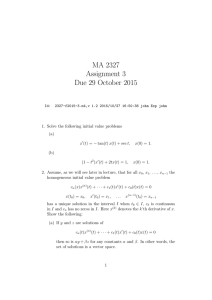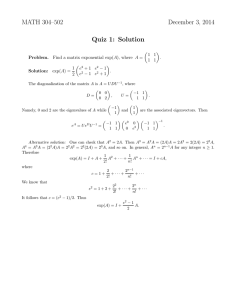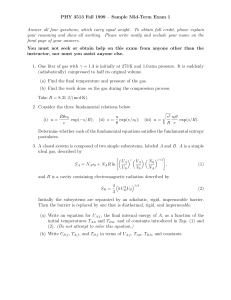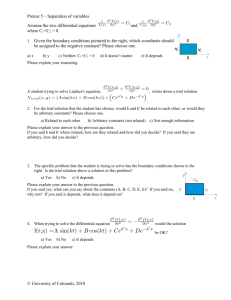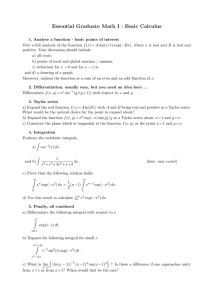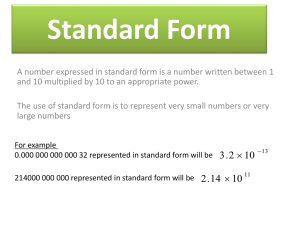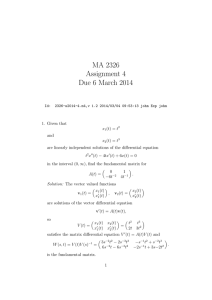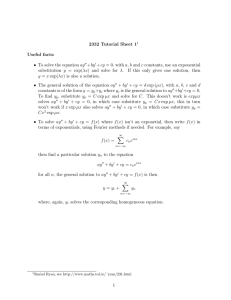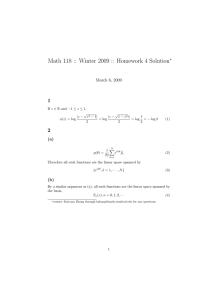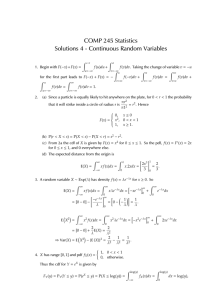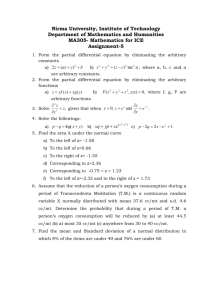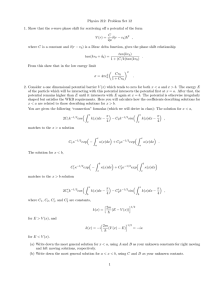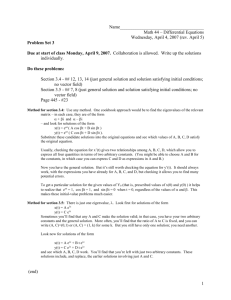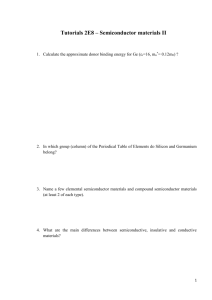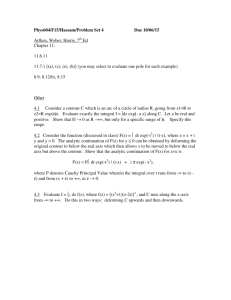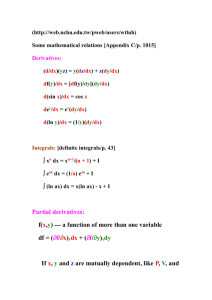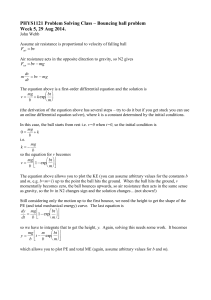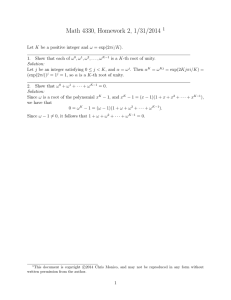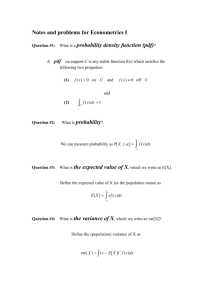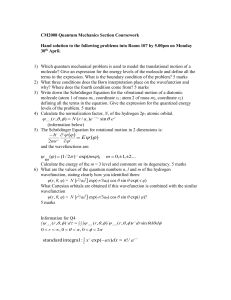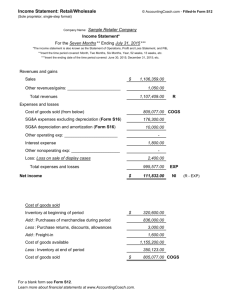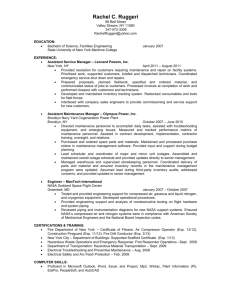Solution to Assignment 1, MATH3230
advertisement
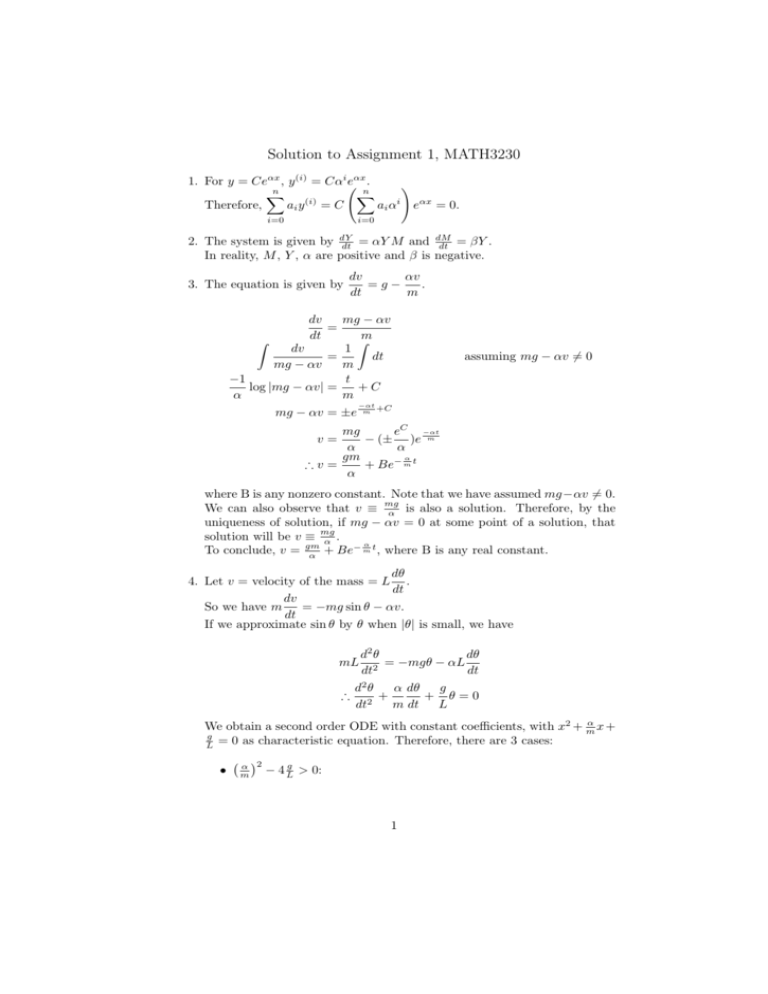
Solution to Assignment 1, MATH3230 1. For y = Ceαx , y (i) = Cαi eαx . ! n n X X (i) i Therefore, ai y = C ai α eαx = 0. i=0 i=0 = αY M and dM 2. The system is given by dt = βY . In reality, M , Y , α are positive and β is negative. dY dt 3. The equation is given by αv dv =g− . dt m dv mg − αv = dt Z Zm dv 1 dt = mg − αv m t −1 log |mg − αv| = +C α m −αt mg − αv = ±e m +C assuming mg − αv 6= 0 mg eC −αt − (± )e m α α α gm −m ∴v= + Be t α v= where B is any nonzero constant. Note that we have assumed mg−αv 6= 0. We can also observe that v ≡ mg α is also a solution. Therefore, by the uniqueness of solution, if mg − αv = 0 at some point of a solution, that solution will be v ≡ mg α . α To conclude, v = gm + Be− m t , where B is any real constant. α dθ 4. Let v = velocity of the mass = L . dt dv So we have m = −mg sin θ − αv. dt If we approximate sin θ by θ when |θ| is small, we have mL ∴ d2 θ dθ = −mgθ − αL dt2 dt α dθ g d2 θ + + θ=0 dt2 m dt L α We obtain a second order ODE with constant coefficients, with x2 + m x+ g = 0 as characteristic equation. Therefore, there are 3 cases: L • α 2 m − 4 Lg > 0: 1 In this case we have θ = A exp q α α 2 −( m )+ ( m ) −4 Lg 2 ! t +B exp α −( m )− q 2 α (m ) g −4 L 2 as general solutions for the differential equation, where A and B are arbitrary constants. α 2 • m − 4 Lg = 0: √ g α This means m = 2 √L and the root to the characteristic equation is √ √ √ g g g − √L . We have θ = A exp − √L t + Bt exp − √L t , where A and B are arbitrary constants. α 2 • m − 4 Lg < 0: ! q g α 2 4L −( m ) α α In this case we have θ = A exp − 2m t sin t +B exp − 2m t cos 2 as general solutions for the differential equation, where A and B are arbitrary constants. 2 ! t q ! 2 g α 4L −( m ) 2 t
